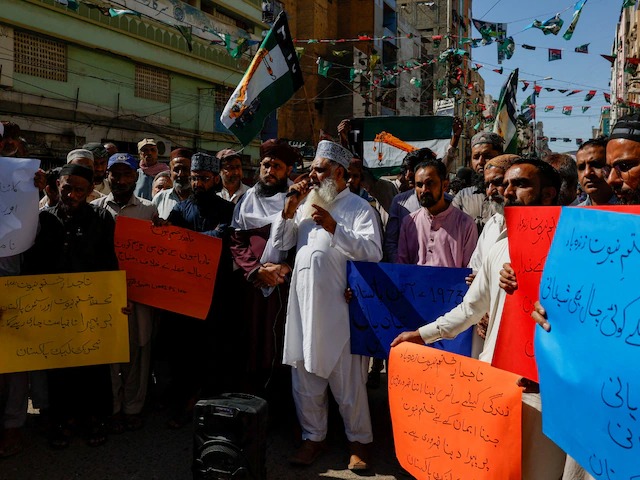In a recent development in Pakistan, a 22-year-old student has been sentenced to death by a provincial court for sharing blasphemous content about Prophet Muhammad and his wives through WhatsApp messages. The defendant was found guilty of disseminating offensive pictures and videos with the intention of outraging the religious sentiments of Muslims, as reported by BBC.
The case, which originated from the cybercrime unit of the Federal Investigation Agency in Lahore, was referred to a local court in Gujranwala. In addition to the death penalty for the 22-year-old, a 17-year-old involved in the same case received a life imprisonment sentence. Both defendants maintain their innocence, with their defense arguing that the charges are part of a fabricated case.
The judges in Pakistan determined that the 22-year-old student had prepared photos and videos containing derogatory content about Prophet Muhammad and his wives, leading to the severe sentence. The younger defendant received a life imprisonment sentence for sharing the controversial material. The Federal Investigation Agency confirmed the receipt of “obscene material” from the plaintiff, extracted from three different mobile phone numbers.
Despite the severity of the punishment, the father of the 22-year-old student, whose identity remains undisclosed, has announced plans to file an appeal in the Lahore High Court. The minor defendant received life imprisonment instead of the death penalty.
Blasphemy laws in Pakistan have a historical background, initially introduced during British rule and expanded under the military government in the 1980s. The country’s blasphemy laws have faced criticism for their harsh punishments, including the death penalty, which has led to instances of individuals being lynched before their trials.
This case comes less than a month after another incident where an angry mob accused a woman of blasphemy for wearing a dress adorned with Arabic calligraphy, mistaken for Quran verses. The ongoing debate surrounding blasphemy laws in Pakistan has sparked controversy and calls for reform from human rights activists.
In a separate incident last August, numerous churches and homes were set ablaze in Jaranwala following accusations against two Christian men for damaging the Quran. Last month, supporters from Pakistani Islamist parties rallied to protest what they claimed were blasphemous remarks by the country’s chief justice. The protest, led by the hardline Tehreek-e-Labaik Pakistan (TLP), expressed dissatisfaction with the chief justice’s decision to grant bail to a member of the minority Ahmadi community in a blasphemy case, asserting that the remarks made during the case were blasphemous.

















Comments